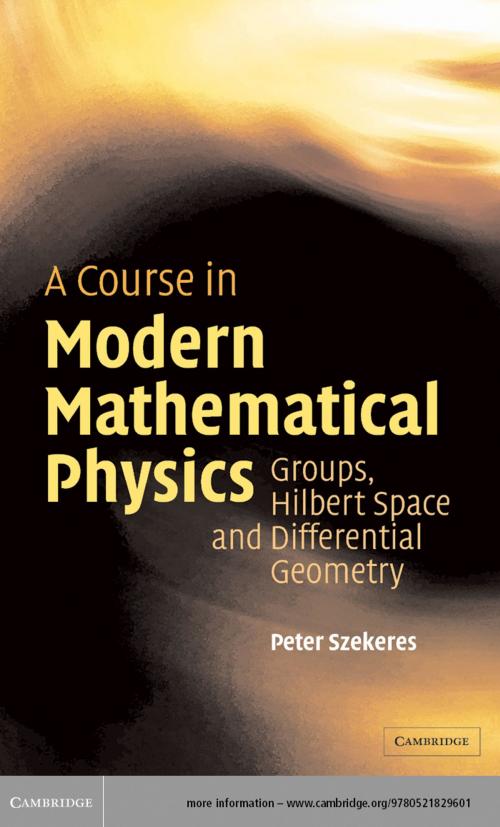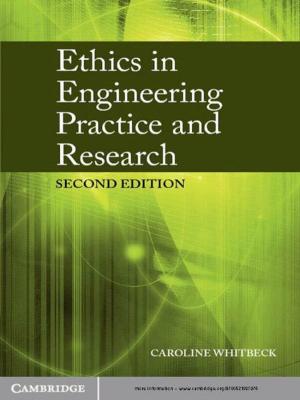A Course in Modern Mathematical Physics
Groups, Hilbert Space and Differential Geometry
Nonfiction, Science & Nature, Science, Physics, Mathematical Physics, Technology| Author: | Peter Szekeres | ISBN: | 9781139637107 |
| Publisher: | Cambridge University Press | Publication: | December 16, 2004 |
| Imprint: | Cambridge University Press | Language: | English |
| Author: | Peter Szekeres |
| ISBN: | 9781139637107 |
| Publisher: | Cambridge University Press |
| Publication: | December 16, 2004 |
| Imprint: | Cambridge University Press |
| Language: | English |
This book, first published in 2004, provides an introduction to the major mathematical structures used in physics today. It covers the concepts and techniques needed for topics such as group theory, Lie algebras, topology, Hilbert space and differential geometry. Important theories of physics such as classical and quantum mechanics, thermodynamics, and special and general relativity are also developed in detail, and presented in the appropriate mathematical language. The book is suitable for advanced undergraduate and beginning graduate students in mathematical and theoretical physics, as well as applied mathematics. It includes numerous exercises and worked examples, to test the reader's understanding of the various concepts, as well as extending the themes covered in the main text. The only prerequisites are elementary calculus and linear algebra. No prior knowledge of group theory, abstract vector spaces or topology is required.
This book, first published in 2004, provides an introduction to the major mathematical structures used in physics today. It covers the concepts and techniques needed for topics such as group theory, Lie algebras, topology, Hilbert space and differential geometry. Important theories of physics such as classical and quantum mechanics, thermodynamics, and special and general relativity are also developed in detail, and presented in the appropriate mathematical language. The book is suitable for advanced undergraduate and beginning graduate students in mathematical and theoretical physics, as well as applied mathematics. It includes numerous exercises and worked examples, to test the reader's understanding of the various concepts, as well as extending the themes covered in the main text. The only prerequisites are elementary calculus and linear algebra. No prior knowledge of group theory, abstract vector spaces or topology is required.















